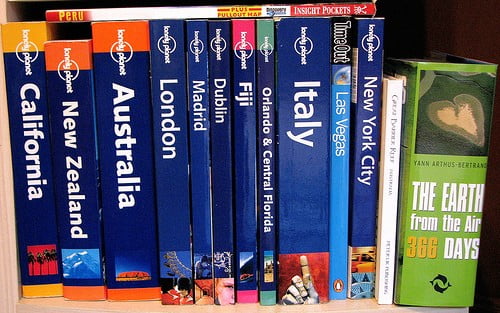So, you want to travel around the world. Maybe you’ve just graduated college and aren’t quite ready to join the 9-to-5 workforce yet, or maybe you’ve already been in the workforce for a few years and need a break. Whatever the circumstances are, you’re going to want to get planning as soon as possible! Here are some universal tips that will help anyone from the seasoned traveler to the amateur traveler.
If you’re looking for new luggage before you travel, check out our buying guides: best suitcase deals | best suitcases under £50 | ultra lightweight suitcases | checked luggage for international travel | aluminium suitcases | underseat suitcases with wheels | zipperless suitcases | extendable suitcases | suitcases for cruises | extra large suitcases | durable suitcases | Tripp suitcases. And for essential travel accessories, we recommend: compression suitcase packing cubes | GPS luggage tracker | passport covers | vanity cases
1.Choose where you want to go.
Regardless of if you’re planning a trip around the world or are just planning on hitting up a few countries, you’re going to want to be specific about where you’re going. Once you pick a destination (or destinations), you’ll be able to categorize your trip into achievable goals. Planning will become a lot easier if you know what country and/or city you’re going to visit, because it will allow you to do the preliminary research that will keep you well-organized throughout the entire process.
2.Figure out a budget and stick to it.
First, figure out how much money you want to spend on the entire trip. Keep in mind that this number will be comprised of several expenses (airfare, lodging, food, excursions, travel insurance). Once this number is set, check out the average daily expenses for your location in order to get a rough estimate for how long you’ll be able to travel.
3.Decide how long you’re going to travel.
Once your budget is determined, you can figure out how long you will be able to travel. Divide your budget (after airfare) by the average daily expenses, and this is how long you will be able to travel for.
4.Search for deals.
Before you book your flights and/or accommodations, make sure you’ve searched high and low for any possible deals you could be missing. This includes deal websites, getting recommendations from local friends/family and taking advantage of special promotions. It might seem like a daunting task at first, but the money you save will be well worth it when you realize that you’ll probably be able to add in extra excursions.
5.Book your flights.
Once you’ve made sure there are no lingering deals for your destination, go ahead and buy your plane tickets. Usually, airfare is slightly cheaper on Tuesdays and Wednesdays, so if you can buy your tickets then, make sure to do so.
6.Figure out accommodations.
Once everything else is squared away, do a little preliminary research regarding what sort of accommodations are available to you in your various destinations. Hostels are great, budget-friendly ways to bunk in different countries while still being able to meet some new friends. Although it may sound silly, look for hostels that advertise rodent pest control, and daily housekeeping services. These services will ensure that you’ll have a clean and affordable stay. If you have relatives or friends in that particular country, make arrangements beforehand to stay with them so you can save even more money.
7.Inform banks that you’re leaving.
Regardless of how long you’re going to be gone, make sure to inform your bank that you’re going to be leaving the country. Why? If you usually make purchases in Louisville, Kentucky but all of a sudden start making purchases in Paris and Hong Kong, the bank’s going to think the spending is fraudulent activity and will block your card from further purchases. Nothing is a bigger vacation bummer than realizing you don’t have access to any money.
8.Purchase travel insurance.
A lot of people skip out on purchasing travel insurance because they have a good medical insurance plan and think nothing is going to happen on their trip. What you may not know is the fact that travel insurance covers much more than medical emergencies. Travel insurance also covers cancelled flights, stolen items, family emergencies at home and much more. It’s only a few dollars per day and it’s well worth your while.
9.Pack.
Right before you leave, make sure you’re packing all of the essential travel items as well as items in case of small emergencies such as lost luggage or stolen items. Make a packing checklist a few weeks before your trip. Why? This will make it easy for you to add items to the list as you think of them, instead of trying to think of everything the night before.
Once you have done all the above, you’re ready to go! Grab your passport and boarding pass and get ready to have an incredible time. Make sure to take lots of pictures so that you can show all your friends and family how much fun you had upon your return. Most of all get ready to accept the fact that you just caught the travel bug!






